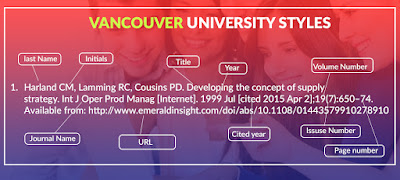The Role of Referencing in Scientific Writing
Referencing can be considered as a systematic and scientific technique to define a source of data by presenting a set of information that facilitates a particular text to be easily identified, sought and retrieved. Though referencing would specifically refer to information sources that are included within a scientific paper, the detailed list of sources is presented within the bibliography.
There are several styles of referencing that have been in use in the medical, scientific and other domains which would include:-
Vancouver
The Harvard and APA referencing styles would comprise of including the name of the author and the year of publication while the Vancouver style involves the use of numbers to denote a reference.
APA ( American Psychological Association )
Harvard University
The ProblemsThe increased number of diverse fields of data for every single material that can be cited often gives rise to referencing that is incomplete or erroneous. Punctuations, formatting of text pertaining to bold, italics, basic short forms of the name of the journal or the author, listing the reference in chronological or alphabetical order and the format for in-text citations can vary substantially in different styles of referencing. In addition, in the case of Vancouver style referencing, the in-text citation numbers can undergo alteration if there is any addition or deletion in the text content. In view of these aspects, ensuring the correct referencing can be quite a challenge.
To know how Medical Writing Experts can help you in writing your Scientific Writing?
Please visit : Scientific writing for Researches
About AuthorDr. Nancy,
Editor-in-chief,
Medical Writing Experts.
Editor-in-chief,
Medical Writing Experts.
About Medical Writing Experts (MedEx)
Medical Writing Experts(MedEx) is a leading global provider of scientific, clinical and medical communication services to pharmaceutical, biotech, device companies and researchers, scholars, academic societies and publishers. The mission of Medical Writing Experts is to translate clinical research and enable sustainable growth through effective medical communication. We have more than 100,000 individuals working across the globe and expertise across over 300 scientific discipline.
Medical Writing Experts(MedEx) is a leading global provider of scientific, clinical and medical communication services to pharmaceutical, biotech, device companies and researchers, scholars, academic societies and publishers. The mission of Medical Writing Experts is to translate clinical research and enable sustainable growth through effective medical communication. We have more than 100,000 individuals working across the globe and expertise across over 300 scientific discipline.
If you need any further information, then please contact us:Email:info@medicalwritingexperts.comWebsite:www.medicalwritingexperts.com




Comments
Post a Comment